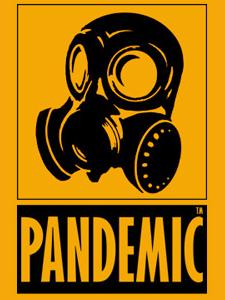Tag Archives: first responders
Dept. of Homeland Security Warns of Impending Zombie Apocalypse
 If there’s one thing Americans love, it’s the zombie apocalypse. I don’t know why, really. Although some people think that it would be cool to blow the heads off the undead and attempt to survive in a brutal post-apocalyptic landscape, most people would get their fat asses either gnawed on by zombies or shot by a survivalist looking for supplies. The harsh reality is that most people wouldn’t survive the zombie apocalypse, but we can keep dreaming that we’re the exception – we’re all Rick from The Walking Dead.
If there’s one thing Americans love, it’s the zombie apocalypse. I don’t know why, really. Although some people think that it would be cool to blow the heads off the undead and attempt to survive in a brutal post-apocalyptic landscape, most people would get their fat asses either gnawed on by zombies or shot by a survivalist looking for supplies. The harsh reality is that most people wouldn’t survive the zombie apocalypse, but we can keep dreaming that we’re the exception – we’re all Rick from The Walking Dead.
This month is National Preparedness Month, and the Department of Homeland Security is capitalizing on the never-ending zombie craze to make people start thinking about what they would do in the event of a disaster.
According to the AP, DHS is urging citizens to prepare for the zombie apocalypse. “The Zombies are coming!” they say.
Except they’re not. At least not right now. DHS’s message is that if you’re prepared for a zombie attack, you’ll likely be prepared for a hurricane, pandemic, earthquake, or terrorist attack. That’s because all of those events have something in common – the need for shelter, food, water, etc. DHS wants emergency planners across the country to use the “zombie attack” trope to get people into the disaster preparedness mindset.
Of course, this isn’t the first time that a government organization has mentioned the z word to citizens. Last year, the Centers for Disease Control actually acknowledged zombies and released their own zombie preparedness guide.
Here’s what the CDC says would happen, on a governmental response level:
If zombies did start roaming the streets, CDC would conduct an investigation much like any other disease outbreak. CDC would provide technical assistance to cities, states, or international partners dealing with a zombie infestation. This assistance might include consultation, lab testing and analysis, patient management and care, tracking of contacts, and infection control (including isolation and quarantine).
It’s likely that an investigation of this scenario would seek to accomplish several goals: determine the cause of the illness, the source of the infection/virus/toxin, learn how it is transmitted and how readily it is spread, how to break the cycle of transmission and thus prevent further cases, and how patients can best be treated. Not only would scientists be working to identify the cause and cure of the zombie outbreak, but CDC and other federal agencies would send medical teams and first responders to help those in affected areas (I will be volunteering the young nameless disease detectives for the field work).
Even though the CDC clearly has a plan, they officially denied the known existence of zombies after a rash of cannibalism stories hit the news earlier this year.
If you have the money and truly wish to prepare for the zombie apocalypse, you can’t go wrong with this kit for the 1%.
MAINE’s OFFICIAL ZOMBIE EMERGENCY DRILL
 The undead are wreaking havoc in Maine — in a unique emergency preparedness drill, at least.
The undead are wreaking havoc in Maine — in a unique emergency preparedness drill, at least.
About 100 first emergency responders from eight counties in Maine were summoned to Bangor to contain a “zombie apocalypse” Thursday in an exercise intended to train them to react to a mass casualty event, the Bangor Daily News reported.
The participants: Bangor residents outfitted with makeup and fake blood to look as “undead” as possible.
In the exercise, the emergency personnel were tasked with treating the zombie-infected participants to prevent them from becoming zombies.
“If they don’t receive the anti-zombie drug, they progress to stage two and then on to the ‘undead’ stage,” Kathy Knight, director of the exercise’s organizer Northeastern Maine Regional Resource Center, explained.
The whole point of the exercise, according to Knight, was to get first responders to “think outside the box” in dealing with a potential pandemic scenario.
“This gives us the opportunity to do something a little bit different, but it still has the same principles that would apply in a real situation,” Knight told the Bangor Daily News.
“The entire thing is very similar to any regular pandemic influenza planning,” she told the Maine Public Broadcasting Network. “So we can use what we learn here in the planning for that type of event.”